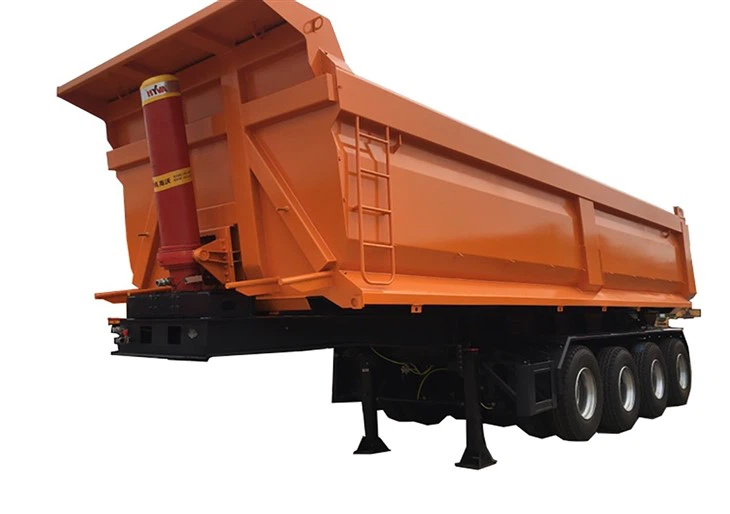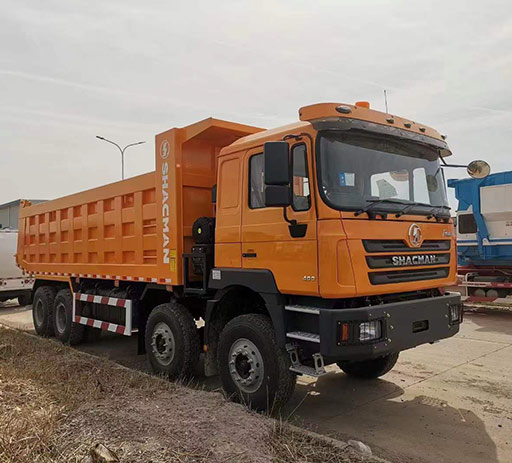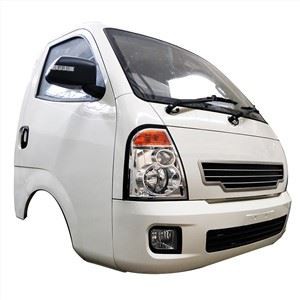Understanding the Flat Bed Mini Truck: Your Ultimate Guide

A flat bed mini truck is one of the most versatile vehicles available today. It combines compact size with an open cargo area, making it an ideal choice for a variety of business and personal needs. From landscaping to small deliveries, flat bed mini trucks provide efficiency and ease of maneuverability that larger trucks simply can’t match. In this comprehensive guide, we will explore everything you need to know about flat bed mini trucks, their uses, advantages, and how to select the best one for your needs.
What is a Flat Bed Mini Truck?
A flat bed mini truck is a small, lightweight vehicle designed for carrying cargo. Unlike standard pickup trucks, the flat bed design features an open rear cargo area without sidewalls, providing easy access for loading and unloading. These trucks are often characterized by a compact frame, fuel efficiency, and lower operational costs.
Key Features of Flat Bed Mini Trucks
- Compact Size: Easily navigates tight spaces often found in urban environments.
- Fuel Efficiency: Lower fuel consumption compared to larger trucks.
- Versatile Cargo Options: Can transport various materials, tools, or equipment.
- Cost-Effective: Generally more affordable to purchase and maintain.
Popular Models of Flat Bed Mini Trucks
1. Subaru Sambar
The Subaru Sambar is a popular choice among flat bed mini truck enthusiasts. Notable for its reliability and outstanding engineering, it offers a robust design and excellent fuel economy.
2. Daihatsu Hijet
The Daihatsu Hijet has a reputation for versatility. With a flat bed that can handle various loads and a spacious cabin, it’s perfect for numerous applications.
3. Suzuki Carry
Known for its durability, the Suzuki Carry is favored in agricultural sectors. Its flat bed can support substantial weight, making it a reliable companion for farmers.
4. Mitsubishi Minicab
The Mitsubishi Minicab combines comfort with functionality. It’s lightweight design enables easy maneuvering while still providing adequate cargo space.
Benefits of Using a Flat Bed Mini Truck
1. Ease of Loading and Unloading
The open design of flat bed mini trucks allows for easy access to the cargo area. Users can load and unload items without the restrictions posed by side walls.
2. Versatility for Various Applications
These vehicles are not just for transporting goods. They can be used for landscaping, as mobile workshops, in agriculture, or for deliveries, adapting seamlessly to different business needs.
3. Cost-Effectiveness
Flat bed mini trucks typically come with lower upfront costs and reduced operating expenses, making them an optimal choice for small businesses and startups looking to minimize overhead.
4. Fuel Efficiency
The compact size and lightweight build of flat bed mini trucks contribute to better fuel economy. This is especially beneficial for businesses or individuals who rely on daily transportation.
Comparative Fuel Economy Table
| Model | Fuel Efficiency (mpg) | Engine Size (L) |
|---|---|---|
| Subaru Sambar | 30-35 | 0.66 |
| Daihatsu Hijet | 28-33 | 0.66 |
| Suzuki Carry | 25-30 | 1.3 |
| Mitsubishi Minicab | 27-31 | 0.66 |
Choosing the Right Flat Bed Mini Truck
Considerations When Purchasing
1. Purpose and Usage
Consider what you plan to use the flat bed mini truck for. Will it be primarily for personal use, or do you need it for business operations? This choice will influence your decision.
2. Payload Capacity
Look into the truck’s payload capacity. Ensure it meets your needs without exceeding the weight limits that could damage the vehicle or violate regulations.
3. Fuel Efficiency
Choose a model that offers good fuel efficiency to save costs in the long run.
4. Brand Reputation
Research manufacturers and read reviews to find a model known for reliability and customer service.
5. Availability of Parts and Service
Ensure that spare parts are readily available and the service network is accessible to avoid future hurdles.
Flat Bed Mini Trucks for Business Use
1. Landscaping and Gardening
Landscapers often rely on flat bed mini trucks to transport soil, plants, and tools. Their ease of loading makes them ideal for these applications.
2. Delivery Services
Businesses that provide delivery services can benefit from using flat bed mini trucks for transporting items quickly around urban settings.
3. Construction Industry
Construction sites require transport for tools and materials. Flat bed mini trucks can haul various equipment safely and efficiently.

Maintenance Tips for Flat Bed Mini Trucks
1. Regular Inspections
Conduct routine inspections of tires, brakes, and lights. Address any issues immediately to ensure safety and performance.
2. Keeping it Clean
Cleaning your truck regularly helps prevent rust and wear. Pay special attention to the flat bed area to maintain its integrity.
3. Engine Maintenance

Follow the manufacturer’s guidelines for oil changes and engine checks to prolong the lifespan of your flat bed mini truck.
Environmental Impact of Flat Bed Mini Trucks
Flat bed mini trucks often produce fewer emissions compared to larger trucks, making them an eco-friendlier option for transporting goods. Their fuel efficiency means that they contribute less to air pollution, aligning with contemporary environmental standards.
Cost Analysis: Buying vs. Renting Flat Bed Mini Trucks
1. Buying
Investing in a flat bed mini truck can be cost-effective if used frequently. It allows ownership of a reliable vehicle tailored to specific needs.
2. Renting
Renting is a viable option for those who need a truck for short-term projects. This option provides flexibility without long-term commitment.

Cost Comparison Table
| Option | Initial Cost | Monthly Expense | Long-Term Cost (3 years) |
|---|---|---|---|
| Buying | $10,000 | $300 (loan) | $21,800 |
| Renting | $0 | $600 | $21,600 |
Frequently Asked Questions
1. What is the average cost of a flat bed mini truck?
The average cost ranges from $5,000 to $15,000 depending on the brand, model, and condition (new or used).
2. How much weight can a flat bed mini truck carry?
Most flat bed mini trucks can carry between 1,000 to 2,000 pounds, depending on the model and specifications.
3. Are flat bed mini trucks suitable for highway use?
Yes, many flat bed mini trucks are designed for highway use, although it’s essential to check local regulations regarding speed limits and licensing.
4. How do I register a flat bed mini truck?
Registration processes can vary by location. Typically, you’ll visit your local DMV or similar authority carrying necessary documents, including proof of ownership and insurance.
5. Can I modify my flat bed mini truck?
Yes, you can modify it; however, ensure that changes comply with local regulations and safety standards.
6. Where can I find spare parts for my flat bed mini truck?
Spare parts can be found through authorized dealerships, online retailers, or local auto parts stores specializing in mini trucks.
